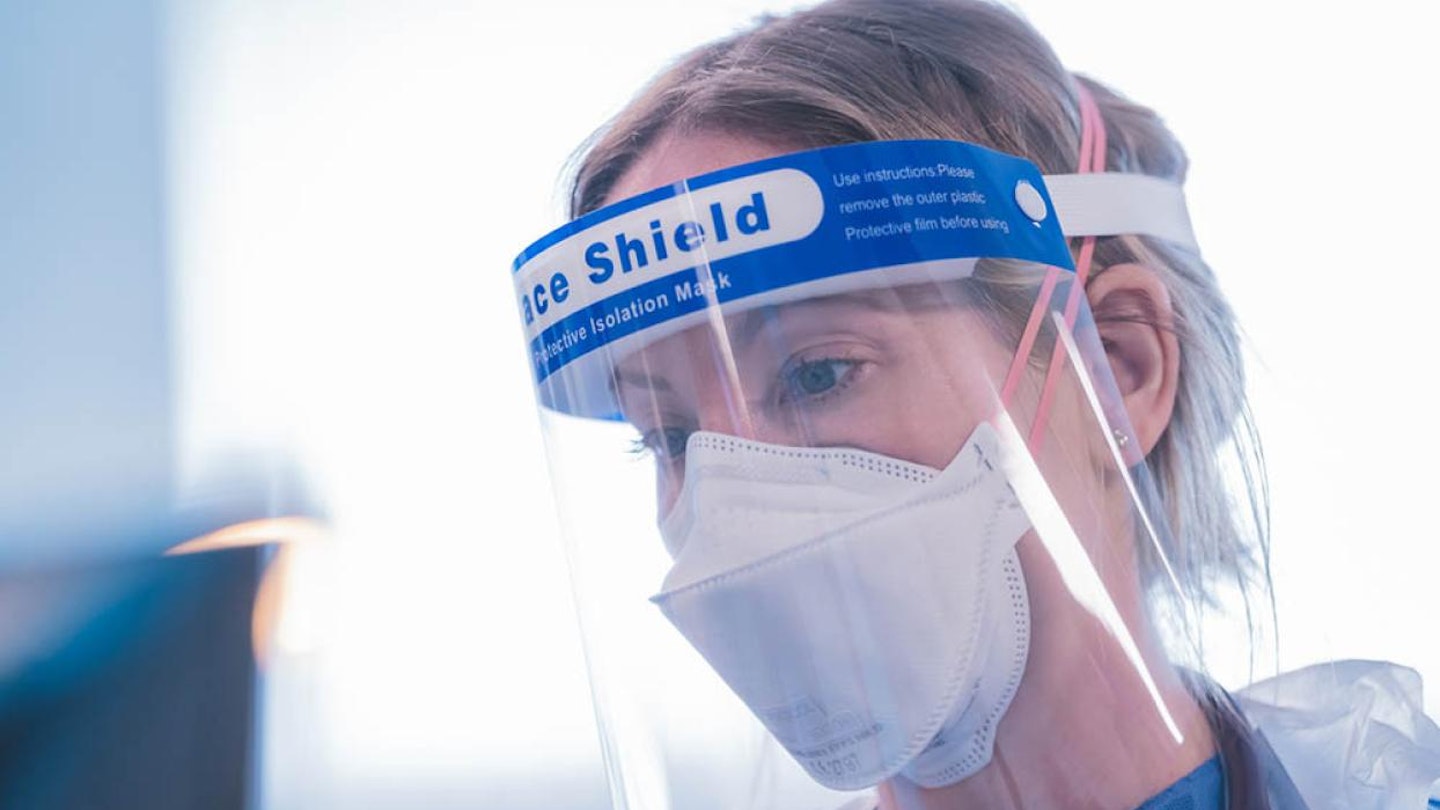When Dr Rachel Clarke came home from working with Covid patients, the first thing she always did was take a shower.
Desperate as she was not to infect her husband and two children, the virus wasn’t the only thing she was trying to scrub off. ‘You were trying to wash away what you had experienced that day, so you had a little bit of time that was pure, that wasn’t contaminated,’ she explains.
Driving home from hospital, she’d sometimes have to stop and cry over the horrors she had witnessed. But she was determined not to bring that trauma back into the family home.
‘When my kids would tell me about going on a bike ride with their dad for the daily exercise, I couldn’t feel the fun and the joy they had, but I could – almost at one removed from it – by them telling me. And I didn’t want that to be contaminated by what I was seeing.’
And then, in the middle of the night when she couldn’t sleep, she poured the things she couldn’t talk about into her memoir, Breathtaking, which has just been turned into an ITV drama – and could do for burnt-out doctors what Mr Bates Vs The Post Office did for wrongly convicted sub-postmasters.
The drama splices together real-life footage of politicians insisting there’s no need to panic with fictionalised scenes depicting the horrific reality in hospitals, where frightened nurses are making PPE from bin bags. Although its central character, Dr Abbey Henderson, played by Joanne Froggatt, is a composite made up of different doctors’ experiences, her children are roughly the age of Clarke’s own (now 13 and 17).
Clarke co-wrote the script with Line Of Duty’s Jed Mercurio and Prasanna Puwanarajah, both former junior doctors themselves. To make it look as realistic as possible, the actors underwent a medical bootcamp, being drilled in the techniques they perform on screen. ‘We really want our colleagues, when they watch it, to say, “Yes, that’s what it was like, I feel seen by this,”’ says Clarke. But mostly, she wants ordinary viewers to understand how it felt to fight the medical equivalent of a war.
She cried while writing some scenes and still suffers flashbacks. ‘I don’t really want to think about it, it’s too painful, but it will pop up whether I like it or not.’ Though she’s clearly still angry with Boris Johnson – ‘by all accounts an inveterate liar’ – and a Government she says failed to level with the public or obey their own lockdown rules, the drama’s other clear target is people now trying to claim lockdowns weren’t really necessary. ‘I can’t begin to imagine how many more people would have died if we’d not had lockdowns.’
Her lowest point was the winter of 2020-2021, when Johnson was resisting a second lockdown despite surging Covid rates. ‘The hardest thing for me was seeing the country careering into that wave, which we all knew was going to result in tens of thousands more deaths, knowing that if different political decisions were made potentially that death toll could, if not be averted completely, at least be reduced.’
By January 2021, with the NHS running out of ventilators and ambulances, she was having panic attacks that made her feel as if she was dying herself. ‘It felt like standing on a train track seeing the train coming towards you and not being able to stop it.’
Though Clarke still works in the NHS, she says the pandemic has changed her, making her more outspoken over things she considers wrong. ‘After Covid, I just couldn’t live with myself if I was being part of the problem.’
The Breathtaking finale is on ITV tonight.
